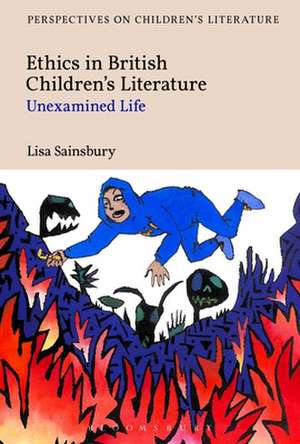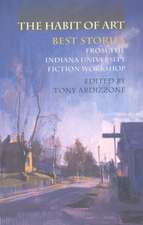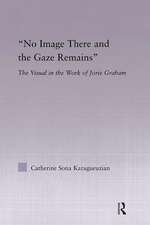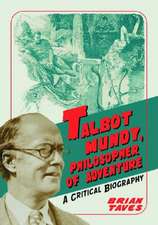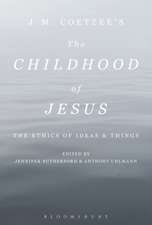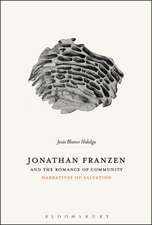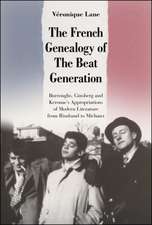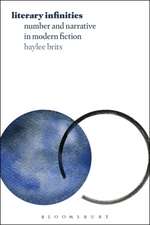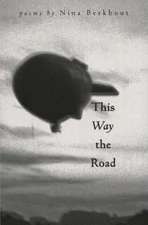Ethics in British Children's Literature: Unexamined Life: Bloomsbury Perspectives on Children's Literature
Autor Dr Lisa Sainsburyen Limba Engleză Hardback – 28 aug 2013
| Toate formatele și edițiile | Preț | Express |
|---|---|---|
| Paperback (1) | 256.85 lei 43-57 zile | |
| Bloomsbury Publishing – 25 feb 2015 | 256.85 lei 43-57 zile | |
| Hardback (1) | 772.98 lei 43-57 zile | |
| Bloomsbury Publishing – 28 aug 2013 | 772.98 lei 43-57 zile |
Din seria Bloomsbury Perspectives on Children's Literature
- 22%
 Preț: 238.40 lei
Preț: 238.40 lei - 30%
 Preț: 510.42 lei
Preț: 510.42 lei - 7%
 Preț: 149.02 lei
Preț: 149.02 lei - 22%
 Preț: 224.58 lei
Preț: 224.58 lei - 22%
 Preț: 230.03 lei
Preț: 230.03 lei - 23%
 Preț: 159.67 lei
Preț: 159.67 lei - 22%
 Preț: 224.58 lei
Preț: 224.58 lei - 22%
 Preț: 224.41 lei
Preț: 224.41 lei - 21%
 Preț: 218.09 lei
Preț: 218.09 lei -
 Preț: 196.79 lei
Preț: 196.79 lei - 23%
 Preț: 190.41 lei
Preț: 190.41 lei -
 Preț: 190.75 lei
Preț: 190.75 lei - 14%
 Preț: 510.25 lei
Preț: 510.25 lei - 14%
 Preț: 510.42 lei
Preț: 510.42 lei -
 Preț: 191.85 lei
Preț: 191.85 lei -
 Preț: 250.59 lei
Preț: 250.59 lei - 18%
 Preț: 599.17 lei
Preț: 599.17 lei
Preț: 772.98 lei
Preț vechi: 1112.45 lei
-31% Nou
Puncte Express: 1159
Preț estimativ în valută:
147.96€ • 160.77$ • 124.36£
147.96€ • 160.77$ • 124.36£
Carte tipărită la comandă
Livrare economică 21 aprilie-05 mai
Preluare comenzi: 021 569.72.76
Specificații
ISBN-13: 9781441139832
ISBN-10: 1441139834
Pagini: 240
Dimensiuni: 156 x 234 x 18 mm
Greutate: 0.48 kg
Ediția:New.
Editura: Bloomsbury Publishing
Colecția Bloomsbury Academic
Seria Bloomsbury Perspectives on Children's Literature
Locul publicării:London, United Kingdom
ISBN-10: 1441139834
Pagini: 240
Dimensiuni: 156 x 234 x 18 mm
Greutate: 0.48 kg
Ediția:New.
Editura: Bloomsbury Publishing
Colecția Bloomsbury Academic
Seria Bloomsbury Perspectives on Children's Literature
Locul publicării:London, United Kingdom
Caracteristici
Draws on philosophically rigorous analysis of a range of thinkers from Plato to Peter Singer.
Notă biografică
Lisa Sainsbury is Director of the National Centre for Research in Children's Literature, University of Roehampton, UK.
Cuprins
List of FiguresAcknowledgementsIntroduction: Unexamined Life in The Inferno1.The Sin of Indifference (Part I): Beyond Naughty 2. The Sin of Indifference (Part II): Discovering Evil3. Moral Ammunition: Growing Out of Dissatisfaction through Ethical Life 4. Midnight Philosophy and Environmental Ethics5. The Making of Monsters: Duty, Gender and the Rightness of Wrong6. The Greatness of Apple Seeds: Ethical Relationships in Miniature LiteratureConclusion: Through the Library...Towards a Life ExaminedReferences
Recenzii
Lisa Sainsbury has produced a stimulating and challenging text which analyses ethics and morality as central precepts of children's literature extant in contemporary writing. This book is essential to the student of children's literature
Lisa Sainsbury has written a highly original study which illustrates brilliantly how children's literature contributes to children's moral, ethical and intellectual development. Spanning writers from Dante and Iris Murdoch to Enid Blyton and David Almond it shows how literature guides children to think about the world as it is and as it might be.
Lisa Sainsbury's book is a ground-breaking study that brings children's literature research to a new level of sophistication. This is interdisciplinarity at its very best, and a well-balanced alliance of theoretical awareness and broad knowledge of children's texts, classic and contemporary, popular and less-known. Sainsbury takes us on a journey through the most fundamental issues of children's literature. This book will doubtless become a milestone.
With Lisa Sainsbury's Ethics in British Children's Literature the ethical turn in the humanities - which has been gathering momentum since the mid 1990s - has come back to the study of children's literature in full force. I write "come back" since early critical texts on children's literature almost always insist on the moral and ethical aspects of literature, its educational value. Over time, however, the Romantic view of the "innocent child" seems to have spilled over into literature for children, making it as innocent and innocuous as its young readers. It is true, however, that we have seen in the last decades a renewed interest in the moral and ethical qualities of children's literature has come to light. Unfortunately, much of it has been sketchy and lacking in depth, however. This is where Lisa Sainsbury's study comes in. Instead of relying on interprets and second-hand wisdom, she re-reads Hegel and Kant, and brings the study of children's literature up-to date with Plato and Spinoza. I am deeply impressed by her incisive and fresh readings of the classical philosophers, and vice versa, the way in which modern children's literature actually can engage with the fundamentals of ethical thinking.
This is an important work which unites British children's literature with on-going debates in philosophy. Incorporating analyses of poetry, film, picturebooks and music as well as the novel, Sainsbury invites readers into a nuanced discussion of the moral and ethical questions which have informed the development of British children's literature over the last two centuries.
Lisa Sainsbury's focus is less on what children's literature teaches its young readers about being good than it is on how the texts she considers encourage their readers to think about what being good might mean and to become aware of the complexities inherent in our attempts to achieve goodness. Her carefully detailed analyses of a variety of British texts for children published since the middle of the last century uncover a fascinating range of ways in which aspects of narrative structure work to encourage ethical thoughtfulness in their young readers. Ethics in British Children's Literature is an important contribution to our understanding of the potentially positive and liberating aspects of the impulse to teach in writing for young people, an impulse all too often thoughtlessly dismissed as old-fashioned or merely and always repressive.
Sainsbury's book takes seriously the opportunity to show how childrens books and philosophy each can illuminate and enrich the study of the other. Sainsbury's extensive knowledge of children's boks makes all the difference in her ability to create an appreciation for the relevance and usefulness of continental philosophy to the reading of British children's books. Sainbury's examination makes it clear how a tradition of children's books in England has benefitted from and extend philosophical discussions of moral behavior and perceptions of the child. This book is truly of value to student s of both British children's literature and continental philosophy.
Lisa Sainsbury has written a highly original study which illustrates brilliantly how children's literature contributes to children's moral, ethical and intellectual development. Spanning writers from Dante and Iris Murdoch to Enid Blyton and David Almond it shows how literature guides children to think about the world as it is and as it might be.
Lisa Sainsbury's book is a ground-breaking study that brings children's literature research to a new level of sophistication. This is interdisciplinarity at its very best, and a well-balanced alliance of theoretical awareness and broad knowledge of children's texts, classic and contemporary, popular and less-known. Sainsbury takes us on a journey through the most fundamental issues of children's literature. This book will doubtless become a milestone.
With Lisa Sainsbury's Ethics in British Children's Literature the ethical turn in the humanities - which has been gathering momentum since the mid 1990s - has come back to the study of children's literature in full force. I write "come back" since early critical texts on children's literature almost always insist on the moral and ethical aspects of literature, its educational value. Over time, however, the Romantic view of the "innocent child" seems to have spilled over into literature for children, making it as innocent and innocuous as its young readers. It is true, however, that we have seen in the last decades a renewed interest in the moral and ethical qualities of children's literature has come to light. Unfortunately, much of it has been sketchy and lacking in depth, however. This is where Lisa Sainsbury's study comes in. Instead of relying on interprets and second-hand wisdom, she re-reads Hegel and Kant, and brings the study of children's literature up-to date with Plato and Spinoza. I am deeply impressed by her incisive and fresh readings of the classical philosophers, and vice versa, the way in which modern children's literature actually can engage with the fundamentals of ethical thinking.
This is an important work which unites British children's literature with on-going debates in philosophy. Incorporating analyses of poetry, film, picturebooks and music as well as the novel, Sainsbury invites readers into a nuanced discussion of the moral and ethical questions which have informed the development of British children's literature over the last two centuries.
Lisa Sainsbury's focus is less on what children's literature teaches its young readers about being good than it is on how the texts she considers encourage their readers to think about what being good might mean and to become aware of the complexities inherent in our attempts to achieve goodness. Her carefully detailed analyses of a variety of British texts for children published since the middle of the last century uncover a fascinating range of ways in which aspects of narrative structure work to encourage ethical thoughtfulness in their young readers. Ethics in British Children's Literature is an important contribution to our understanding of the potentially positive and liberating aspects of the impulse to teach in writing for young people, an impulse all too often thoughtlessly dismissed as old-fashioned or merely and always repressive.
Sainsbury's book takes seriously the opportunity to show how childrens books and philosophy each can illuminate and enrich the study of the other. Sainsbury's extensive knowledge of children's boks makes all the difference in her ability to create an appreciation for the relevance and usefulness of continental philosophy to the reading of British children's books. Sainbury's examination makes it clear how a tradition of children's books in England has benefitted from and extend philosophical discussions of moral behavior and perceptions of the child. This book is truly of value to student s of both British children's literature and continental philosophy.
